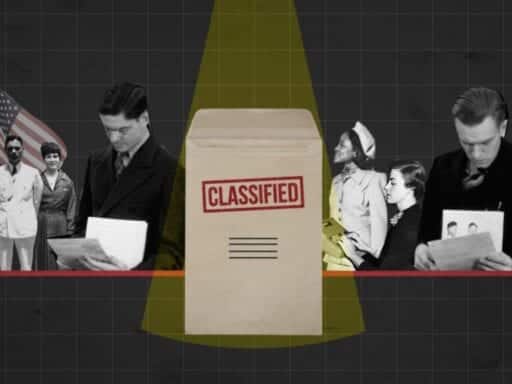Whistleblowers who work with classified information have a few options. All of them are bad.
Whistleblowing in the US is fraught with enormous peril — and for government employees who work with classified information, the options available are far riskier.
In some ways, whistleblowing is a time-worn American tradition. Since the American Revolution, when US sailors blew the whistle on a corrupt Navy captain who tortured British prisoners of war, there have been protections on the books for people brave enough to come forward.
But for people working in the intelligence community, those protections have only recently become codified. In 1998, one of the first whistleblower protection laws for intelligence community workers was passed, and it laid out a process for how to expose wrongdoing. That process, however, only provides one narrow option: seeking permission from your own agency — the very agency that may be the perpetrators of wrongdoing — before your complaint can go to Congress.
“It’s almost like an artery that’s heavily blocked,” says Tom Devine, the legal director of the Government Accountability Project. “They have to first go to the agency where they worked, the institution where they’re being accused of misconduct.”
The case of Thomas Drake, a National Security Agency executive who complained about a secretive and wasteful post-911 surveillance program, highlights the pitfalls of this process. Even though Drake went through proper channels with his complaint, he was still met with retaliation and, eventually, prosecution. “That case was really by far the most Kafka-esque high-profile case. They sought 35 years of incarceration,” Devine said.
Laws that protect intelligence community whistleblowers against retaliation weren’t passed until 2012 under President Barack Obama. Ironically, Obama set another type of precedent: His Justice Department prosecuted more government workers who leaked information to the media than any of the previous administrations combined, using the Espionage Act, a 1917 law intended to prosecute spies working with foreign governments. Thomas Drake was the target of one of those cases. And Donald Trump’s administration is on track to match that record. “You can literally seek imprisonment for someone for whom it would be illegal to fire them for,” Devine said.
Whistleblower advocates say new laws that allow intelligence community employees access to civilian courts for recourse, plus providing greater guarantees of anonymity, would go a long way toward fixing the current whistleblower protections. Until then, more people may just stay quiet.
You can find this video and all of Vox’s videos on YouTube. And if you’re interested in supporting our video journalism, you can become a member of the Vox Video Lab on YouTube.
Author: Ranjani Chakraborty
Read More



